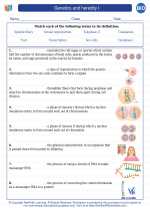Genetics and heredity I -> deoxyribonucleic acid
Deoxyribonucleic Acid (DNA)
Deoxyribonucleic acid, or DNA, is a molecule that carries the genetic instructions for the development, functioning, growth, and reproduction of all known living organisms and many viruses. It is often referred to as the "building block of life" due to its crucial role in heredity and genetics.
Structure of DNA
DNA is composed of two strands that coil around each other to form a double helix structure. Each strand is made up of nucleotides, which consist of a sugar (deoxyribose), a phosphate group, and a nitrogenous base. The nitrogenous bases in DNA are adenine (A), thymine (T), guanine (G), and cytosine (C). These bases form complementary base pairs: A pairs with T, and G pairs with C.
Function of DNA
The primary function of DNA is to store and transmit genetic information. It serves as a blueprint for the production of proteins, which are essential for the structure and function of cells. DNA achieves this by coding for specific sequences of amino acids, which are the building blocks of proteins.
Replication of DNA
DNA replication is the process by which DNA makes an identical copy of itself. This is essential for cell division and the transmission of genetic information from one generation to the next. The replication process involves the unwinding of the double helix, separation of the two strands, and the synthesis of new complementary strands based on the existing strands.
Study Guide
- Describe the structure of DNA and the components of a nucleotide.
- Explain the complementary base pairing in DNA and how it contributes to the stability of the double helix structure.
- Discuss the role of DNA in heredity and genetics, and provide examples of genetic traits that are determined by DNA.
- Outline the process of DNA replication, including the enzymes involved and the significance of fidelity in replication.
- Compare and contrast DNA with RNA in terms of structure, function, and location within the cell.
[Deoxyribonucleic Acid] Related Worksheets and Study Guides:
.◂Biology Worksheets and Study Guides High School. Genetics and heredity I
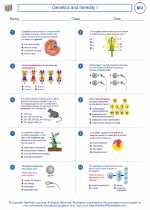
 Worksheet/Answer key
Worksheet/Answer key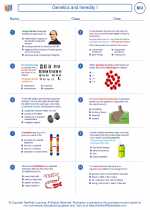
 Worksheet/Answer key
Worksheet/Answer key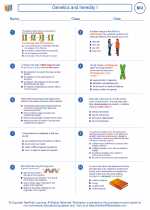
 Worksheet/Answer key
Worksheet/Answer key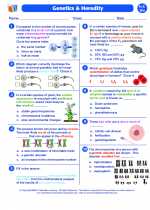
 Vocabulary/Answer key
Vocabulary/Answer key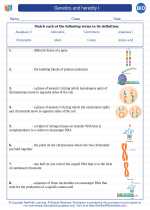
 Vocabulary/Answer key
Vocabulary/Answer key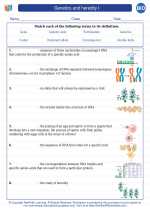
 Vocabulary/Answer key
Vocabulary/Answer key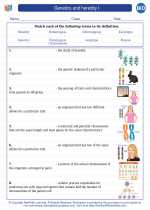
 Vocabulary/Answer key
Vocabulary/Answer key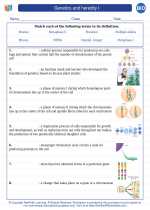
 Vocabulary/Answer key
Vocabulary/Answer key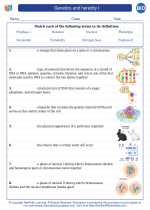
 Vocabulary/Answer key
Vocabulary/Answer key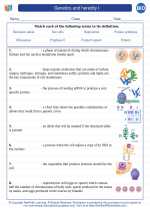
 Vocabulary/Answer key
Vocabulary/Answer key